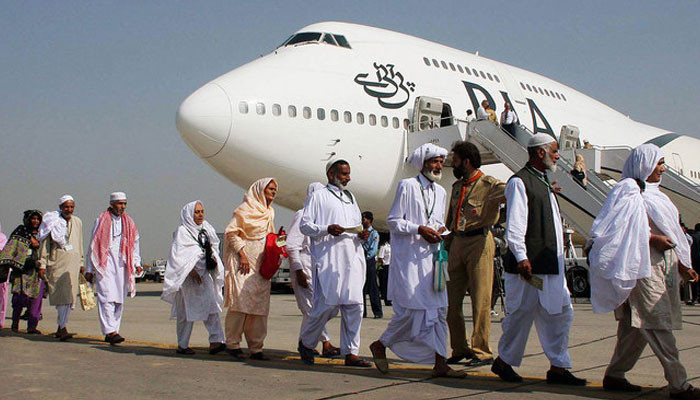Government Announces Hajj Application Dates and Policy for 2026
The Minister for Religious Affairs, Sardar Muhammad Yousuf, announced that the government will commence accepting Hajj applications starting August 4.
Detailing the Hajj Policy 2026, which received federal cabinet approval earlier today, the minister confirmed Pakistan’s pilgrim quota will remain at 179,210. Of these, 119,210 pilgrims will participate under the government’s standard program.
The private scheme’s allocation has been reduced by 50% to 60,000, allocating two-thirds of the total quota to the governmental scheme.
Under the new policy, the governmental scheme represents 66.52% of the total quota, while the private scheme accounts for 33.48%.
The overall Hajj cost under the government scheme is projected to range between Rs1,150,000 and Rs1,250,000. An initial deposit of Rs500,000 is required in the first week of August.
The government scheme will offer a Hajj package lasting 20 to 25 days, with priority given to those who registered beforehand, as previously instructed.
Addressing concerns about reducing the private scheme’s quota, the minister clarified the decision aims to enable private operators to better manage their quotas and improve service delivery. He also noted that the ministry was not consulted during the compilation of a previous report that criticized the ministry for quota lapses.
The Ministry of Religious Affairs’ portal will automatically close applications once the government scheme’s quota is fulfilled, according to the Secretary of the Ministry.
In related news, a senior ministry official informed the Senate standing committee that the government is considering facilitating Zaireen’s travel to Karbala by sea for Arbaeen.
Senator Attaur Rehman presided over the meeting, which addressed Hajj 2025 preparations and the existing road travel restrictions for Zaireen visiting Karbala.
Senator Raja Nasir Abbas emphasized the government’s duty to safeguard the religious freedoms of Zaireen wishing to travel to Karbala for Arbaeen. The minister assured that all concerns would be duly addressed.
The Hajj Policy 2026 will fully digitize the Hajj journey beginning in 2026.
Under the new policy, 70% of pilgrims will be facilitated by the government, while 30% will utilize private operators, who will face increased scrutiny.
Private Hajj companies responsible for past service failures will be required to accommodate the affected pilgrims in 2026 at the prior year’s rates.
Key enhancements include real-time tracking, digital wristbands, mobile applications, SIM cards, and a revised compensation system.
The Ministry of IT will collaborate with the Ministry of Religious Affairs to ensure digital transformation of Hajj operations.
Acknowledging previous issues with private tour operators delaying payments, Minister Yousaf stated that these operators must offer Hajj packages to affected pilgrims at the previous year’s prices.
To bolster transparency, a financial eligibility standard for private operators has been established. A neutral third party will monitor both public and private Hajj schemes.
Hajj selection will now operate on a first-come, first-served basis, and only pilgrims with Saudi-approved vaccinations will be permitted to participate.
The “Road to Makkah” initiative will be available at Islamabad and Karachi airports.
The ministry will provide extensive training to pilgrims and establish emergency response teams. A robust financial oversight system and a clear grievance resolution process will be implemented.
The Hajj Nazim Scheme will continue, and children under 12 will not be allowed to perform Hajj.



Comments (0)
No comments yet. Be the first to comment!
Leave a Comment